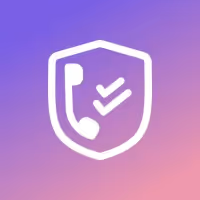UpLead Alternatives
Find 10 UpLead alternatives. We compare data, features, and pricing to help you decide on a new provider for your company.

Many sales teams use UpLead for good reasons. It's a solid tool for building B2B contact lists, finding phone numbers, and getting technology data. The platform is known for its ease of use and providing a good return on investment.
But like any tool, it has some drawbacks. Some users report issues with outdated contacts or inaccurate data. We've analyzed top alternatives based on G2 reviews to help you find the right fit. Let's get started.
11x: Digital Workers for Sales
If you are looking to automate sales tasks, digital workers might be a solution. These AI agents can manage repetitive activities, which allows your sales team to concentrate on closing deals.
11x provides these digital workers for sales development. If this approach aligns with your company's goals, you can explore how their AI agents operate and what tasks they can take on for your team.
At 11x, we provide a GTM platform where AI agents manage the sales process. Our agent Alice finds prospects, runs outreach on email and LinkedIn, and updates your CRM. Julian qualifies inbound leads and books meetings for your team.
Our platform consolidates your tech stack. We replace separate tools for data enrichment and sales outreach. Email warmup is also included, so all functions are unified in one place.
UpLead Alternatives
Below, we review several UpLead alternatives in detail. We cover their pricing, main features, and how they compare to UpLead in terms of advantages and drawbacks.
1) ZoomInfo SalesOS
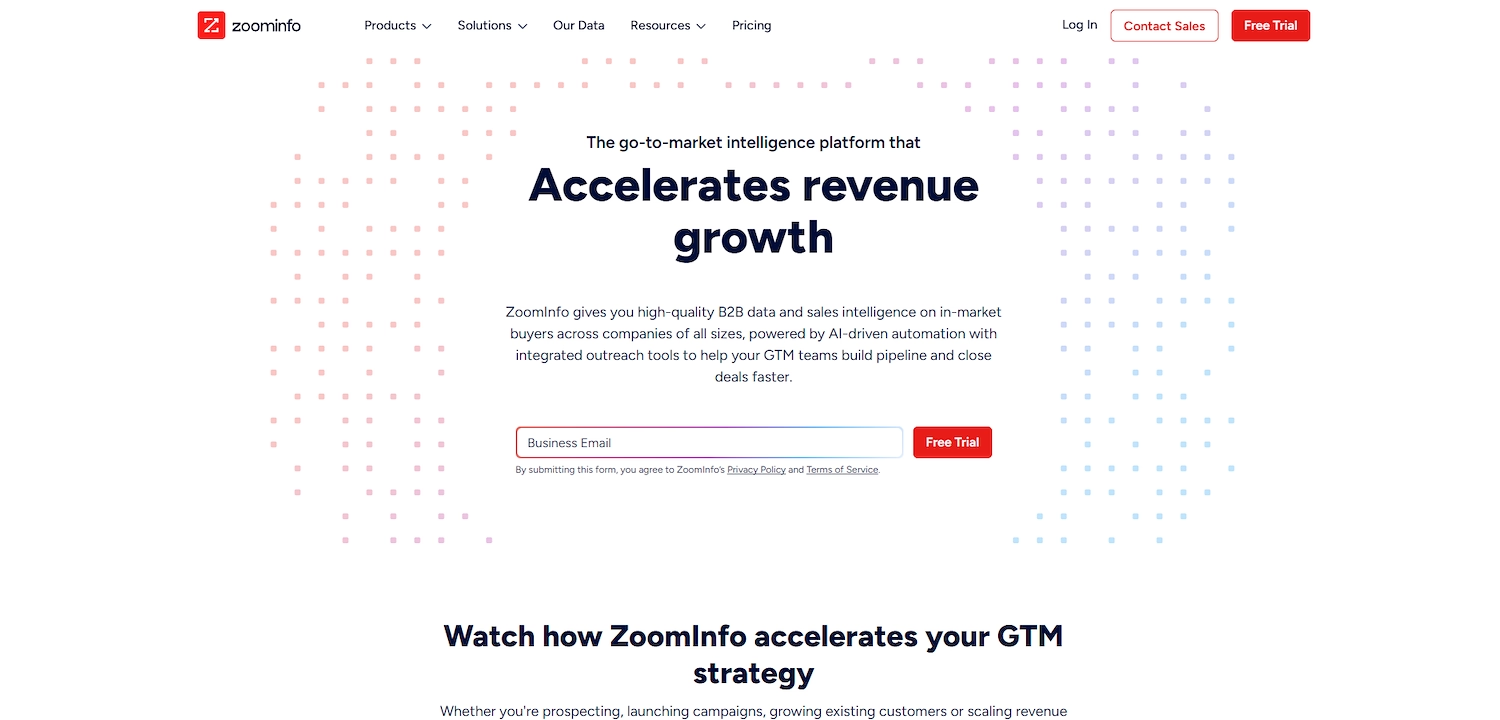
ZoomInfo SalesOS is a go-to-market intelligence platform for B2B organizations. It unifies company and contact data, including phone numbers, with buyer-intent signals and automation tools. The system acts as a single source of truth for sales, marketing, and operations teams.
Common use cases include prospecting for new leads with verified data and the enrichment of information within a company's existing tech stack and CRM.
ZoomInfo SalesOS's Main Features
- Identifies prospects ready to buy using real-time intent signals.
- Analyzes call and meeting interactions with its conversation intelligence tool.
- Turns anonymous website visitors into potential sales leads.
- Includes a generative-AI companion, Copilot, to surface insights and draft outreach.
How ZoomInfo SalesOS Compares to UpLead
Average Review score: 4.5/5 stars based on 8,738 G2 reviews.
- Unlike UpLead, which focuses on contact data, ZoomInfo SalesOS includes buyer-intent signals. This feature helps teams find prospects who show active buying behavior.
- The platform offers conversation intelligence to analyze sales calls and meetings. This provides insights into interactions that are not available within UpLead's feature set.
- An integrated generative-AI companion, Copilot, gives AI-guided recommendations. This level of AI assistance for outreach is a step beyond the data-building functions of UpLead.
- The tool identifies anonymous website visitors and turns them into leads. This is a lead generation method not present in UpLead, which primarily builds lists from its database.
Potential Downsides Compared to UpLead
- ZoomInfo SalesOS often has a higher perceived cost. It may take up to 14 months to see a return on investment, which can be a longer period compared to the quicker value some users find with UpLead.
- The platform’s data, while extensive, can sometimes contain inaccuracies. Some users report outdated contact information, which is a challenge for large-scale data providers.
- Its implementation can be more complex than UpLead's. The wide array of features means teams might need around a month to get the system fully operational, unlike more straightforward tools.
Pricing and Cost-Effectiveness
UpLead provides transparent pricing tiers, with its Essentials plan at $99 and a Professional plan at $399. ZoomInfo SalesOS does not publish its prices, instead providing custom quotes, which is a model often better suited for enterprise clients with specific needs.
2) LinkedIn Sales Navigator
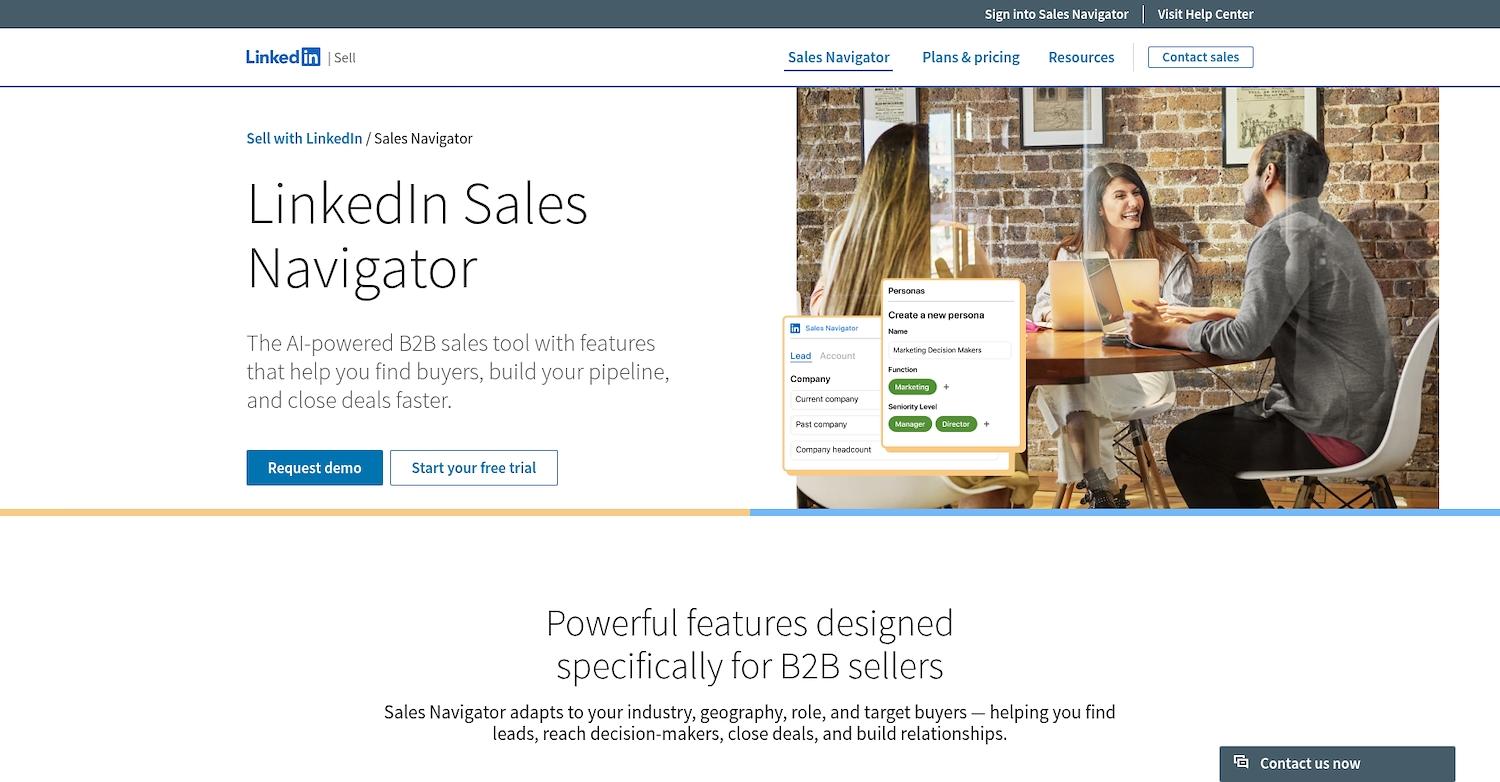
LinkedIn Sales Navigator is a sales intelligence tool that uses the LinkedIn professional network. It helps sales teams find and connect with prospects through advanced search filters and lead recommendations.
The platform allows users to save relevant leads and accounts. It also provides real-time updates on these saved contacts, which supports direct outreach efforts on the network.
LinkedIn Sales Navigator's Main Features
- Uses advanced search filters and lead recommendations to help sales teams find prospects.
- Saves relevant leads and accounts to track them within the platform.
- Provides real-time updates on saved contacts to support outreach efforts.
How LinkedIn Sales Navigator Compares to UpLead
Average Review score: 4.3/5 stars based on 1,990 G2 reviews.
- LinkedIn Sales Navigator provides access to LinkedIn's live network of over 860 million professionals. This differs from UpLead, which uses a static contact database.
- The tool offers real-time updates on saved leads, such as job changes. This dynamic tracking is a feature not found in UpLead, which focuses on data export.
- It includes advanced search filters for highly specific prospect targeting within the LinkedIn ecosystem. This allows for more granular searches than the filtering options available in UpLead.
- Users get a set number of InMail messages for direct outreach on the platform. This integrated communication channel is distinct from UpLead's function of providing external contact information.
Potential Downsides Compared to UpLead
- LinkedIn Sales Navigator does not provide direct phone numbers or verified email addresses. This differs from UpLead, which is designed to build exportable contact lists with this specific data.
- The tool lacks technographic data, which details a company's technology stack. In contrast, UpLead provides this information, allowing teams to qualify prospects based on their current software.
- Exporting bulk contact data is not a primary function of the platform. UpLead, however, operates on a credit system for downloading lists, which is often more suitable for large-scale list-building campaigns.
Pricing and Cost-Effectiveness
UpLead offers transparent pricing, with its Essentials plan at $99 and Professional plan at $399. In contrast, LinkedIn Sales Navigator does not publish its prices, operating on a custom-quote basis often suited for larger teams. For specific pricing details, visit the LinkedIn Sales Navigator 's official website.
3) Apollo.io
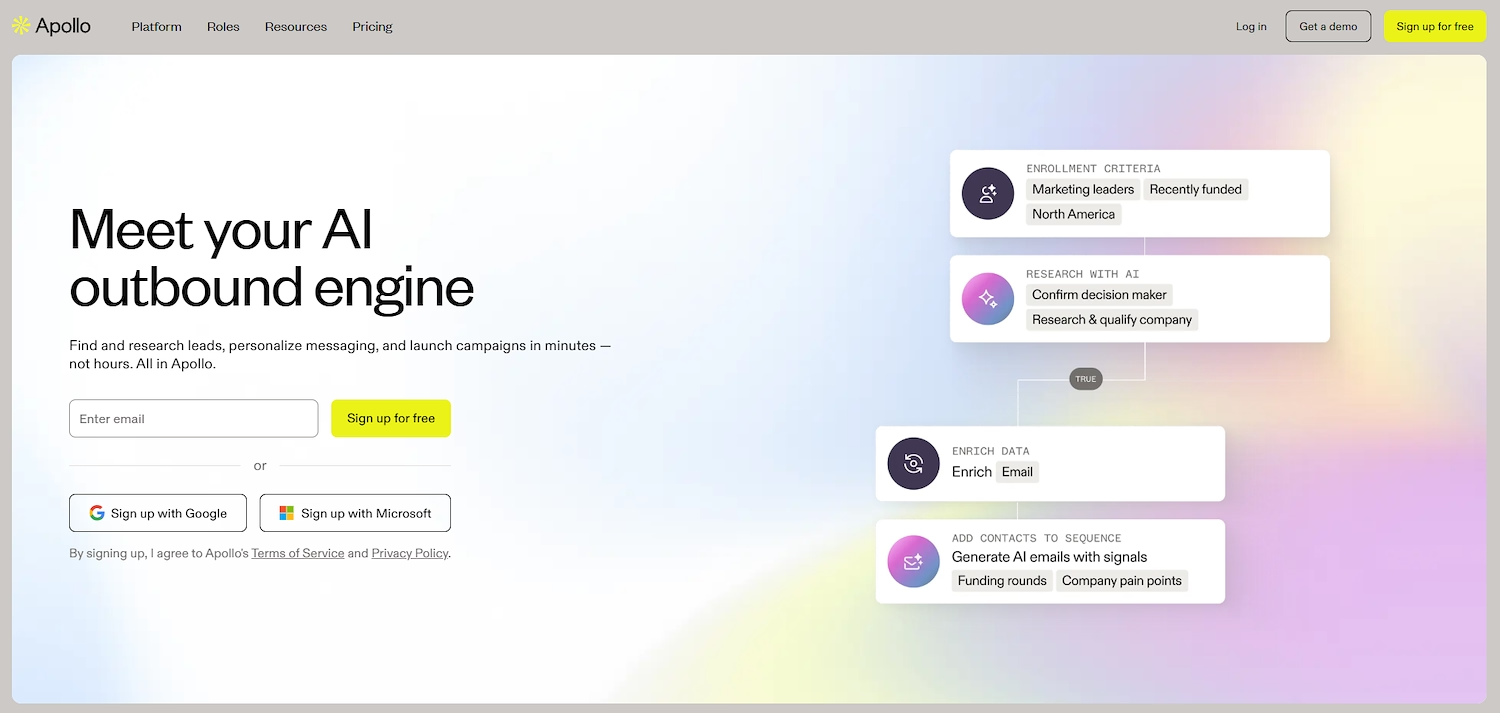
Apollo.io is a sales intelligence platform that provides a B2B database. It offers technographics data and a phone number finder. Common use cases include building prospect lists and enriching contact information for sales and marketing teams.
Apollo.io's Main Features
- Provides a B2B database for building prospect lists.
- Offers technographics data on a company's technology stack.
- Includes a phone number finder to locate contact numbers.
- Enriches existing contact information for sales and marketing teams.
How Apollo.io Compares to UpLead
Average Review score: 4.7/5 stars based on 8,904 G2 reviews.
- Apollo.io provides an all-in-one platform that includes a sales engagement suite. This differs from UpLead, which focuses on contact data for export to other tools.
- The platform allows users to build and automate outreach sequences. This is a built-in function, whereas UpLead requires data to be moved to a separate sales engagement tool.
- It includes an AI intelligence engine that gives recommendations and analytics. This provides a layer of sales guidance not present in UpLead's data-focused service.
- A free plan is available, which offers an entry point for users to test core features. UpLead, in comparison, operates on a paid subscription model from the start.
Potential Downsides Compared to UpLead
- Some users find that data accuracy can be inconsistent within Apollo.io's large database. UpLead, by contrast, is more specialized, focusing its process on data verification to ensure list quality.
- The tool's all-in-one design can create a learning curve for new users. UpLead, on the other hand, is often recognized for its simple interface that requires minimal setup.
- Its platform includes many features like sales engagement. This might be excessive for teams that only need to build and download contact lists, which is UpLead's primary function.
Pricing and Cost-Effectiveness
UpLead’s Essentials plan is $99 per month, while Apollo.io offers a free plan and a paid Basic plan at $49 per month, making it a more cost-effective entry point. This pricing difference reflects Apollo.io's all-in-one model versus UpLead's focus on verified data quality. For detailed pricing, visit Apollo.io 's official website.
4) Lusha
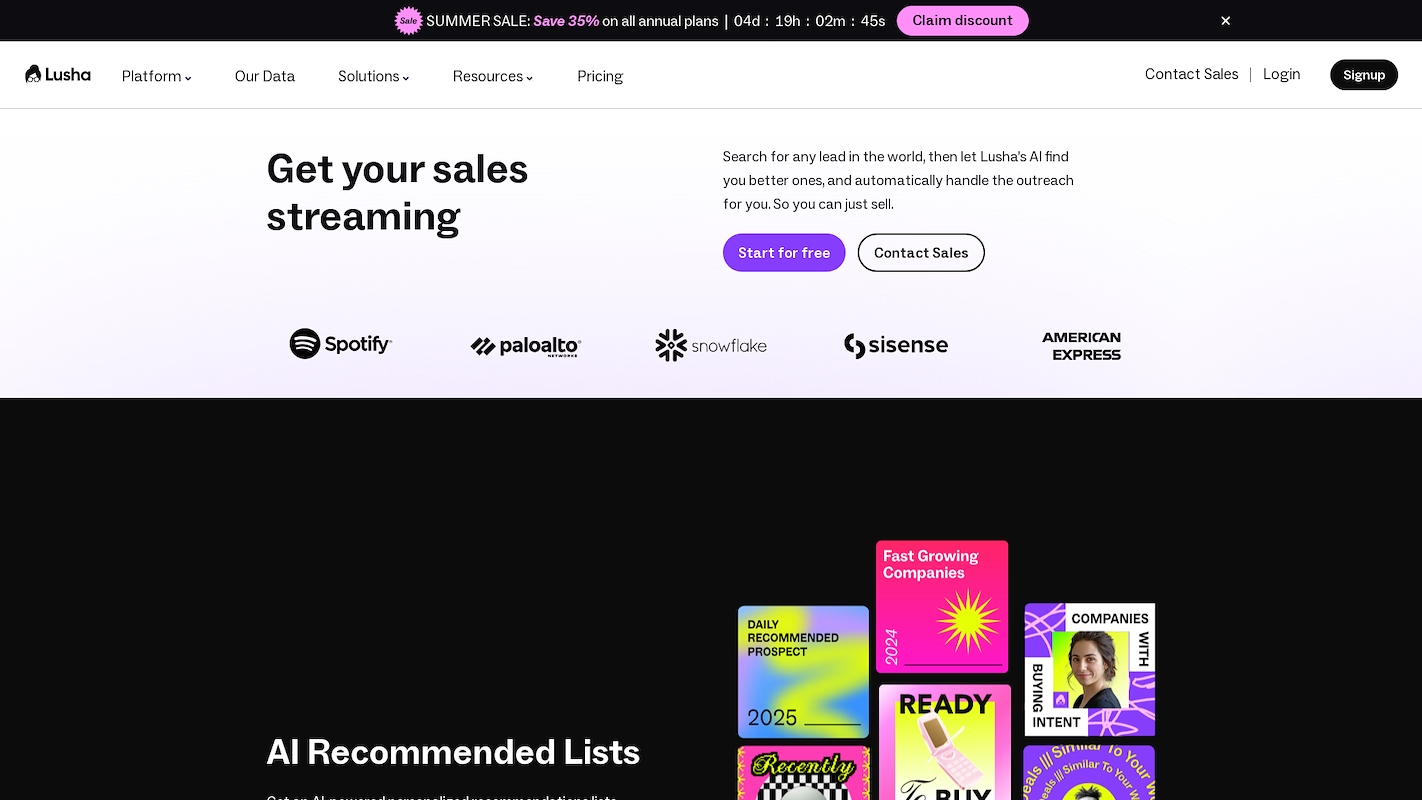
Lusha is a sales intelligence platform that offers B2B contact and company data. It provides access to phone numbers and email addresses. The tool also includes technographics data, which shows the technology a company uses.
Sales and marketing teams use the platform to find prospect information. Common use cases involve the creation of contact lists for outreach and the enrichment of existing data records.
Lusha's Main Features
- Provides AI-generated prospect playlists that auto-update with fresh leads at user-defined intervals.
- Identifies in-market buyers through intent signals and sends real-time notifications on triggers.
- Automates and personalizes email sequences with an AI copy-driven engagement tool.
- Records and analyzes sales meetings with its conversation intelligence feature.
How Lusha Compares to UpLead
Average Review score: 4.3/5 stars based on 1,516 G2 reviews.
- Lusha provides AI-generated prospect playlists that automatically refresh with new leads. This contrasts with UpLead, which focuses on building static lists for users to download.
- The tool identifies buyers who show intent signals and sends real-time notifications. This is a feature not available in UpLead, which centers on providing contact data.
- Its platform includes an AI tool for automating and personalizing email outreach. This is different from UpLead, which requires exporting data to a separate sales engagement tool.
- Lusha offers a conversation intelligence feature to analyze sales meetings. This function provides insights into calls, which is a capability UpLead does not have.
Potential Downsides Compared to UpLead
Some users report that Lusha's data can sometimes be inaccurate. UpLead, in comparison, focuses its process on data verification to ensure the quality of its contact lists.
The platform's credit system may feel restrictive for some users, especially for phone numbers. In contrast, UpLead's credit model is often better suited for large-scale list creation.
Its CRM integration sometimes lacks a full two-way sync, according to some reviews. This is different from UpLead, which is built to enrich information within a company's existing tech stack.
Pricing and Cost-Effectiveness
Lusha provides a free plan and paid tiers starting at $36 per month, while UpLead’s paid plans begin at $99 per month. This makes Lusha a more accessible option for smaller budgets, while UpLead's higher price aligns with its focus on data verification. For detailed pricing, visit Lusha's official website.
5) ContactOut
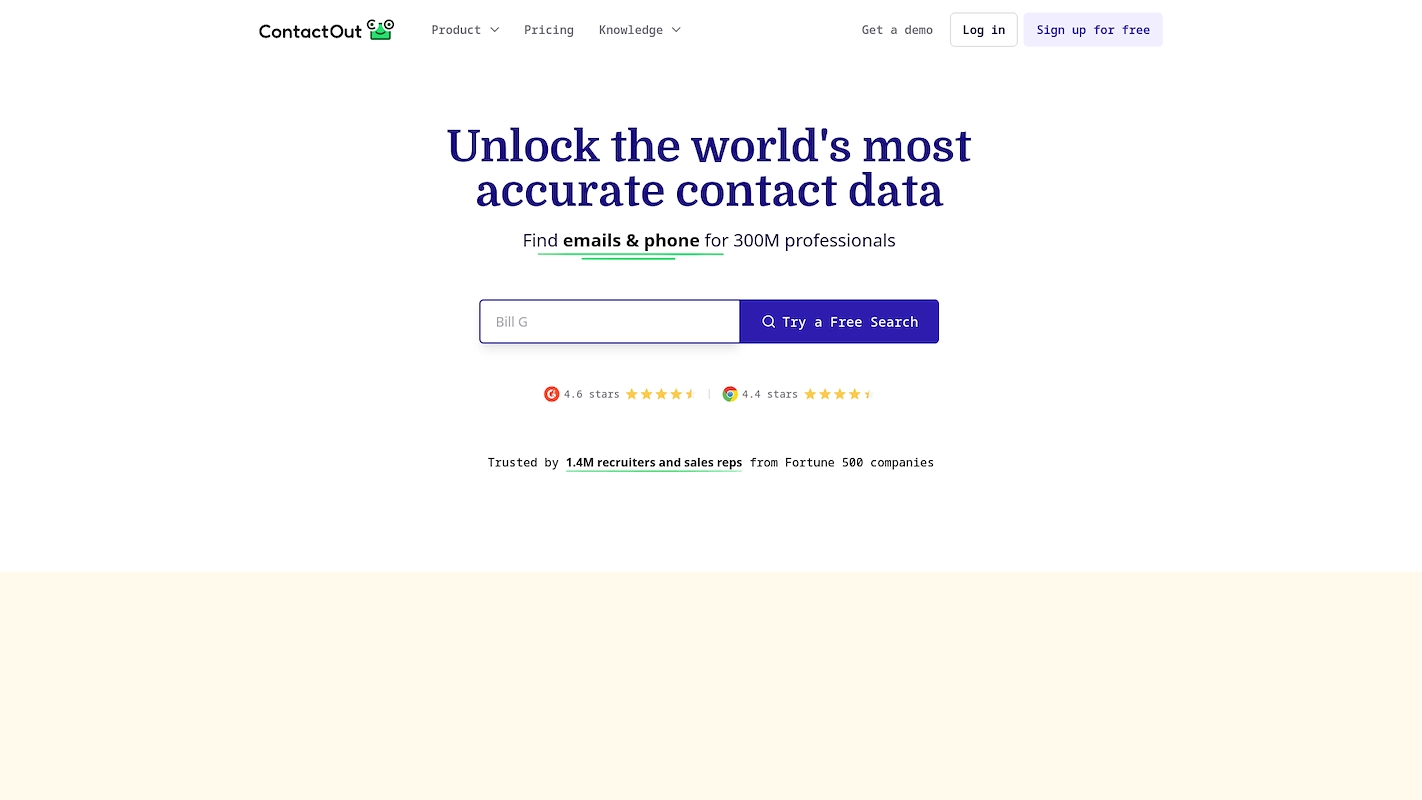
ContactOut is a sales intelligence platform that provides a B2B database with phone numbers and technographics data. Sales and recruitment teams use the tool to find leads and candidates. Common use cases include the creation of prospect lists and the enrichment of contact information.
ContactOut's Main Features
- Its Chrome extension reveals email and phone data for 75% of profiles viewed online and adds prospects to campaigns with one click.
- The platform provides a REST API with self-serve keys for programmatic access to its contact and company database.
- An AI personalizer generates hyper-personalized outreach emails to increase reply rates.
- A built-in tool creates multi-stage email campaigns with bulk personalization and performance analytics.
How ContactOut Compares to UpLead
Average Review score: 4.5/5 stars based on 106 G2 reviews.
- ContactOut's Chrome extension reveals contact data directly on online profiles. This differs from UpLead's approach, which focuses on building lists from its internal database.
- The platform includes a built-in tool to create and send email campaigns. In comparison, UpLead requires users to export contact lists to a separate outreach tool.
- It provides an AI personalizer that generates outreach emails. This type of AI-assisted content creation is a feature not found in UpLead.
- The tool offers a REST API for programmatic access to its contact data. This allows for more custom integrations than the standard options available with UpLead.
Potential Downsides Compared to UpLead
- Some users report that ContactOut's data can be inaccurate at times. UpLead, in contrast, has a process that centers on data verification to improve the quality of its contact lists.
- The platform's credit system may feel restrictive for certain use cases. UpLead's model is often considered more suitable for large-scale list-building campaigns that require a high volume of contacts.
- ContactOut's database contains a large number of personal emails, which is useful for recruitment. For teams focused purely on B2B sales, UpLead's B2B-centric data may provide more direct value.
Pricing and Cost-Effectiveness
ContactOut provides a free plan and a paid Sales plan at $79 per month, while UpLead’s paid plans begin at $99 per month for its Essentials tier. This positions ContactOut as a more budget-friendly starting option. UpLead's pricing structure reflects its emphasis on verified data quality, while both tools offer a plan at the $199 per month price point.
Consider 11x for Sales Automation
If you want to automate sales tasks, digital workers are an option. The 11x platform uses AI agents to manage prospect discovery, outreach, and CRM updates. This approach can allow your sales team to focus on deal closure.
At 11x, we use AI agents to manage your sales process. Alice finds prospects and handles outreach, while Julian qualifies leads and books meetings. We consolidate your tech stack, replacing separate tools for data, engagement, and email warmup.
Book a demo to see our platform in action.
6) Hunter
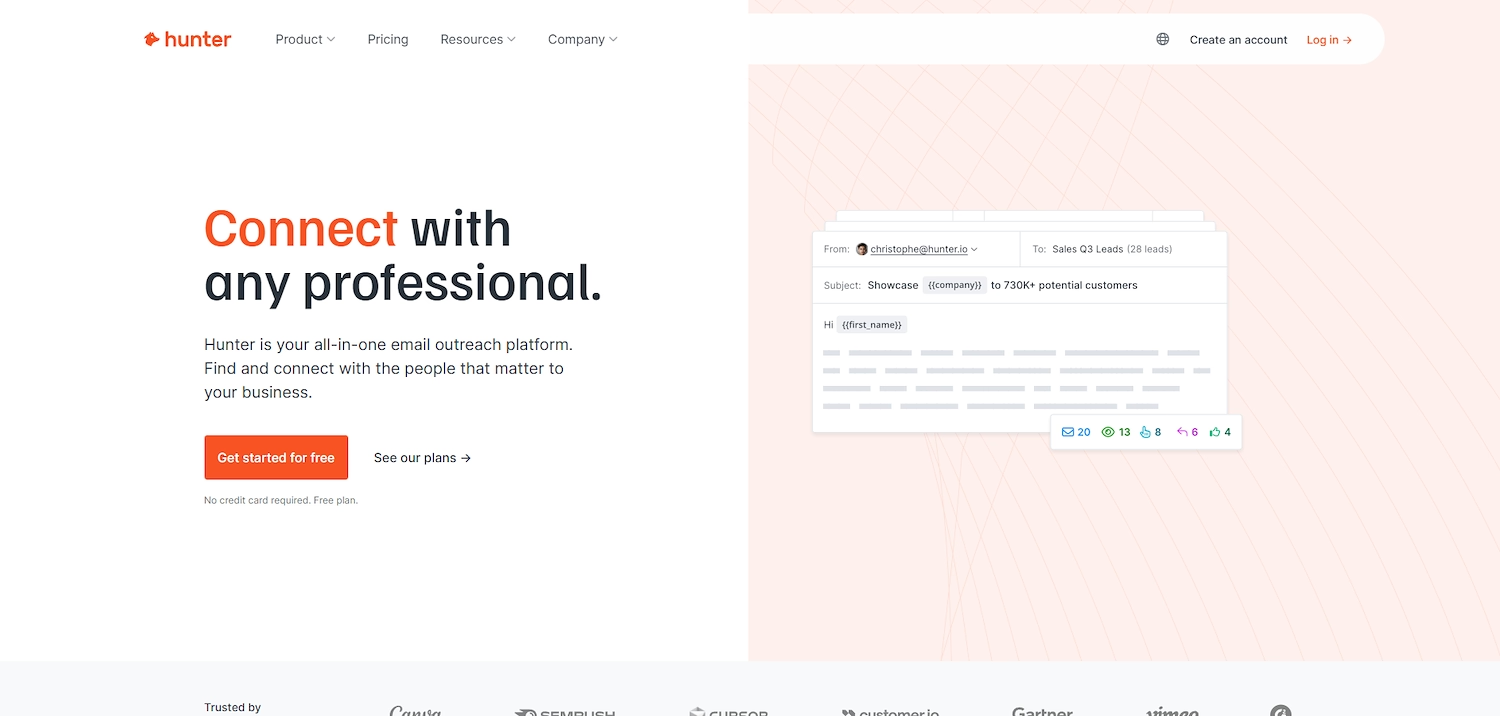
Hunter is a sales intelligence platform that provides a B2B database, a phone number finder, and technographics data. Common use cases for the tool include the creation of prospect lists and the enrichment of contact records for sales outreach.
Hunter's Main Features
- Returns all publicly available company email addresses from a domain name or URL.
- Includes a cold-email suite to compose personalized messages, schedule follow-ups, and view performance analytics.
- Validates email lists in bulk to reduce bounce rates and protect sender reputation.
- Offers a browser extension for one-click email discovery while browsing websites.
How Hunter Compares to UpLead
Average Review score: 4.4/5 stars based on 592 G2 reviews.
- Hunter includes a cold email suite to compose and send outreach campaigns. This is different from UpLead, which requires you to export data to a separate engagement tool.
- The platform offers a bulk email verifier to clean existing lists and reduce bounce rates. While UpLead provides verified data, Hunter's tool is designed to validate large external lists.
- It provides a browser extension that finds email addresses on websites with a single click. This workflow contrasts with UpLead's method of building lists from its internal database.
- Hunter offers a free plan that allows users to access core features without a subscription. UpLead, on the other hand, operates on a paid-only model.
Potential Downsides Compared to UpLead
- Some users report that Hunter's phone number data is not always a direct dial. UpLead, in contrast, focuses on providing verified, direct phone numbers, which can be more effective for sales outreach.
- The platform's database is heavily focused on email addresses. For teams that need a wider range of verified B2B data points for each contact, UpLead often provides a more complete profile.
- It is less focused on bulk data exports for large campaigns. In contrast, UpLead's structure is built around downloading large, clean lists, which better supports teams that run high-volume outreach.
Pricing and Cost-Effectiveness
Hunter offers a free plan and paid tiers starting at $49 per month. This makes it a more accessible entry point compared to UpLead, whose paid plans begin at $99 per month.
The price difference reflects Hunter's focus on email discovery, while UpLead's higher cost is aligned with its provision of verified, multi-point B2B data. For detailed pricing, visit Hunter's official website.
7) Seamless.AI
Seamless.AI is a sales intelligence platform that uses artificial intelligence to find and verify contact information. Sales teams use the tool to build prospect lists with direct dials and email addresses for outreach campaigns.
Seamless.AI's Main Features
- Uses a real-time search engine to find contact and company data.
- Provides a browser extension to find information on websites and social platforms.
- Includes an AI writer to help generate personalized emails for outreach.
- Offers data enrichment to update and complete records within a CRM.
How Seamless.AI Compares to UpLead
- Seamless.AI operates as a real-time search engine, which differs from UpLead's model of providing data from a pre-verified database.
- The platform includes an AI writer for email generation. This is a sales engagement feature not found in UpLead, which focuses on data provision.
- It often provides unlimited contact credits on certain plans. This contrasts with UpLead's model, where users purchase a set number of credits.
Potential Downsides Compared to UpLead
- Some users report that data accuracy can be inconsistent. UpLead, by contrast, offers a 95% accuracy guarantee on its data, which is a core part of its service.
- The "unlimited" credit model may have practical daily limits. This can be less straightforward than UpLead's clear credit-per-contact system.
- The platform's interface includes a wide range of features. Teams that need a simple tool for list creation might find UpLead's focused design easier to navigate.
Pricing and Cost-Effectiveness
Seamless.AI offers a free plan, but paid tiers require a custom quote. This differs from UpLead’s transparent pricing, which starts at $99 per month. A direct cost comparison is difficult without contacting the Seamless.AI sales team.
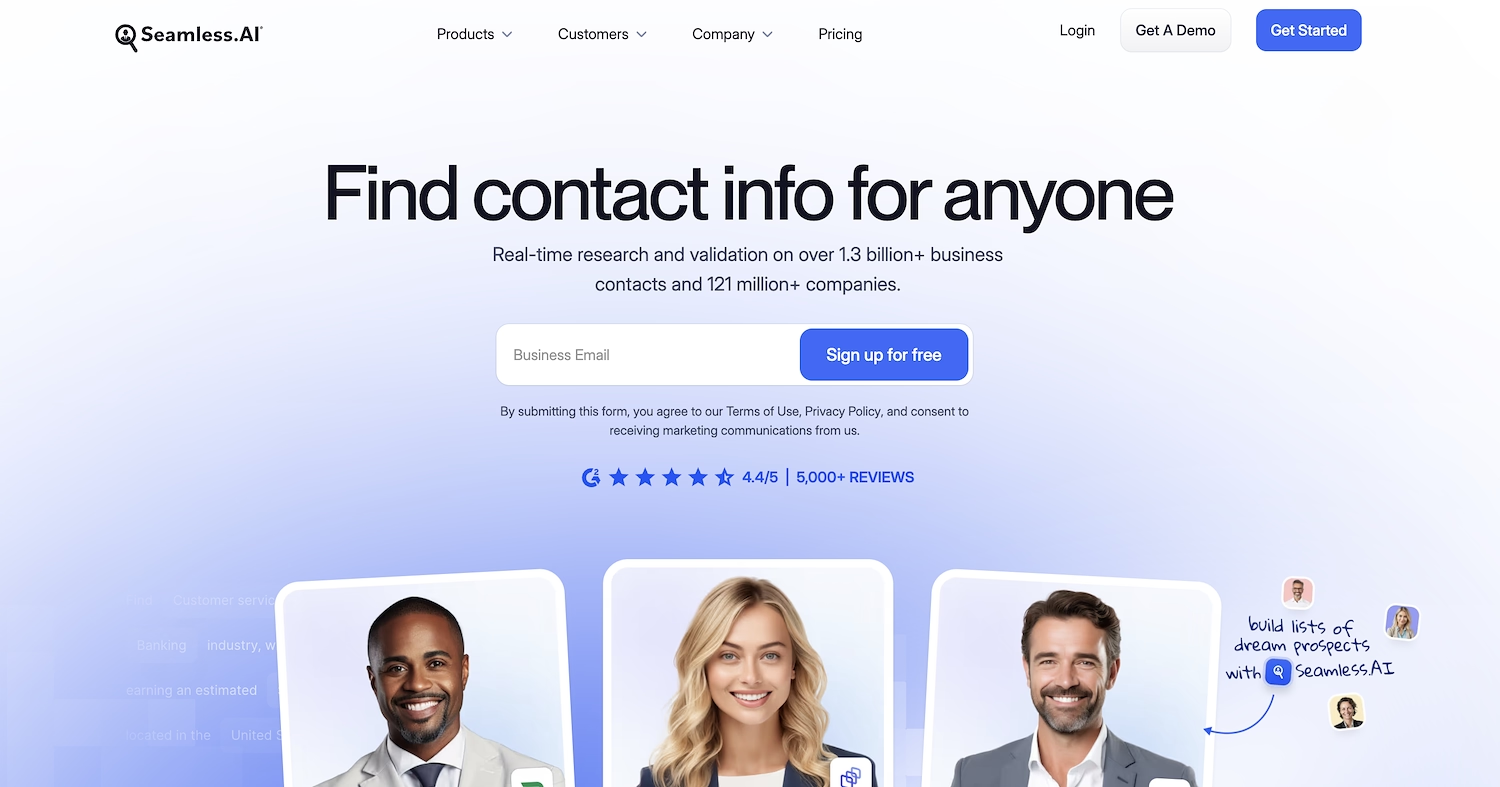
Seamless.AI is a sales intelligence platform that uses a real-time search engine to find B2B contact and company data. It provides direct phone numbers and email addresses for building prospect lists.
Sales teams use the tool for outreach campaigns and to enrich contact records within their CRM.
Seamless.AI's Main Features
- Surfaces prospects ready to buy using buyer intent data.
- Monitors job changes for customers and prospects and automatically delivers new contact information.
- Generates research and personalized messages with its AI pitch intelligence.
- Automates the list-building process to maintain a full sales pipeline.
How Seamless.AI Compares to UpLead
Average Review score: 4.4/5 stars based on 5,067 G2 reviews.
- Seamless.AI operates as a real-time search engine to find contact information. This is different from UpLead, which provides data from its existing, pre-verified database.
- The platform provides buyer intent data to identify prospects who are actively looking to purchase. UpLead, in comparison, focuses on contact data without these buying signals.
- It automatically monitors job changes and delivers new contact details for prospects. This provides timely updates that are not a standard feature within UpLead's platform.
- The tool includes AI pitch intelligence to help generate personalized outreach messages. This is a built-in sales engagement function, whereas UpLead requires exporting data to a separate tool for outreach.
Potential Downsides Compared to UpLead
Some users report that data from Seamless.AI can be inaccurate. In contrast, UpLead provides a 95% accuracy guarantee on its contact information, which is a core part of its service.
The platform's "unlimited" credit model sometimes has practical daily limits. This can be less straightforward than UpLead's clear credit-per-contact system, where users know exactly what they get.
Its interface includes a wide range of features, which can create a learning curve. Teams that need a simple tool for list creation might find UpLead's focused design easier to navigate.
Pricing and Cost-Effectiveness
Seamless.AI offers a free plan, but its paid tiers require a custom quote. This differs from UpLead’s transparent pricing, which starts at $99 per month. A direct cost comparison is difficult without contacting the Seamless.AI sales team, but you can visit the Seamless.AI's official website for more information.
8) Clearbit
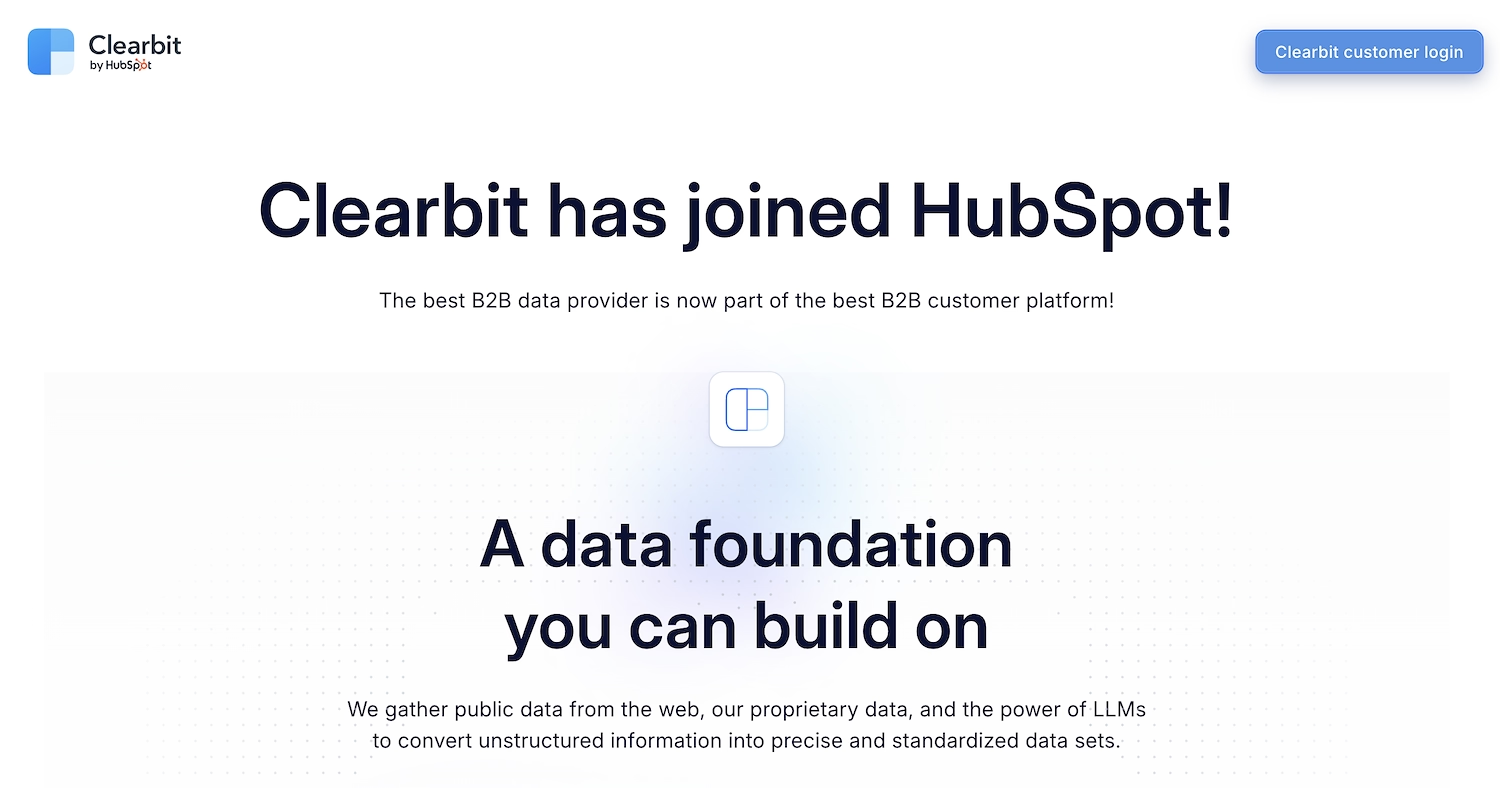
Clearbit is a data platform for B2B teams. It provides a B2B database, technographics, and a phone number finder. Common use cases include the enrichment of company records and the creation of detailed prospect profiles for sales and marketing.
Clearbit's Main Features
- Appends over 100 data points to company records for data enrichment.
- Detects anonymous companies visiting a website and identifies their intent signals.
- Shortens website forms by hiding or autofilling known fields to increase conversions.
- Integrates with platforms like HubSpot to automate and optimize workflows.
How Clearbit Compares to UpLead
Average Review score: 4.4/5 stars based on 626 G2 reviews.
- Clearbit enriches records with over 100 data points. This offers a more detailed company profile compared to the contact-focused data from UpLead.
- It identifies anonymous companies visiting your website. This is a lead generation method not available in UpLead, which builds lists from its internal database.
- The tool can shorten website forms by auto-filling fields for known visitors. This helps increase lead conversion rates, a feature outside of UpLead's data-provision scope.
- Its platform provides intent signals from website visitors. This helps sales teams prioritize active buyers, which is different from UpLead's focus on providing static contact information.
Potential Downsides Compared to UpLead
- Some users report that Clearbit's data can be outdated. This differs from UpLead, which centers its process on data verification and provides a 95% accuracy guarantee for its contact information.
- The tool is primarily designed for data enrichment and to identify anonymous website visitors. Teams whose main goal is to build and download bulk contact lists may find UpLead's platform is a more direct solution.
- Clearbit's pricing is based on custom quotes and may have a longer time to return on investment. UpLead, in contrast, offers transparent pricing tiers, which can make it simpler for teams to manage their budget.
Pricing and Cost-Effectiveness
UpLead offers transparent pricing plans starting at $99 per month, while Clearbit uses a custom-quote model tailored to enterprise clients. A direct cost comparison is difficult, so for accurate pricing, visit Clearbit's official website.
9) RocketReach
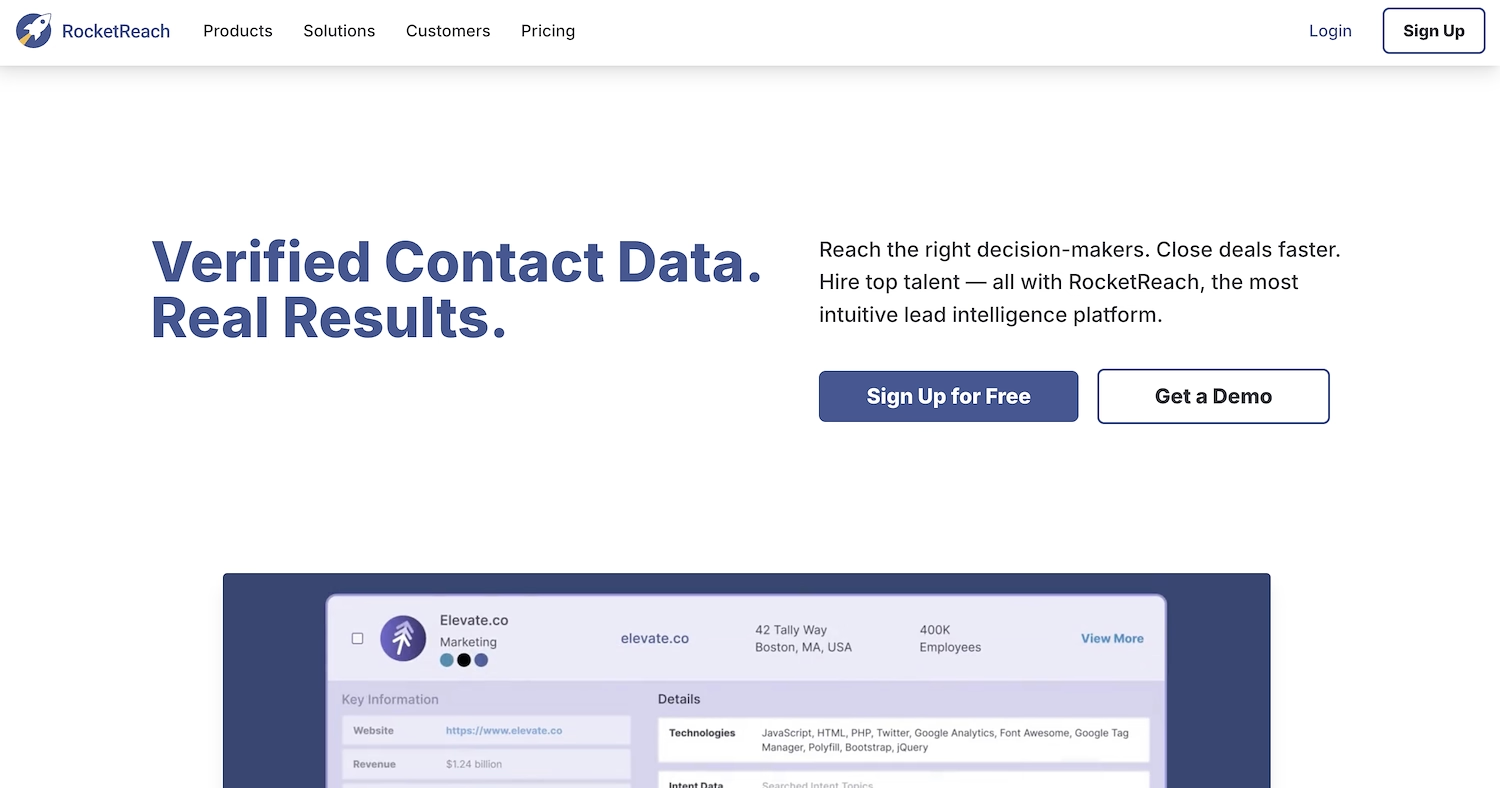
RocketReach is a sales intelligence platform that provides a B2B database, technographics, and a phone number finder. Sales and marketing teams use the tool to build prospect lists and enrich contact information for outreach campaigns.
RocketReach's Main Features
- Provides access to a database of over 700 million professionals and 35 million companies.
- Offers browser extensions for Chrome and Edge to find contact information on websites.
- Includes an API and prebuilt integrations for platforms like Salesforce, HubSpot, and Zapier.
- Features an automated workflow tool, Autopilot, to discover and engage with prospects.
How RocketReach Compares To UpLead
Average Review score: 4.4/5 stars based on 918 G2 reviews.
- RocketReach provides access to a database of over 700 million professionals, which offers a larger pool of contacts compared to UpLead's more curated database.
- The platform includes an automated workflow tool, Autopilot, to discover and engage with prospects. This is a feature not present in UpLead, which focuses on manual list creation.
- It offers an API for custom integrations with platforms like Salesforce and HubSpot, while UpLead is primarily designed for exporting data lists to be used in other systems.
- Its browser extensions for Chrome and Edge find contact information directly on websites. This workflow is different from UpLead's method of building lists from its internal database.
Potential Downsides Compared To UpLead
- Some users report that data from RocketReach can be inaccurate. UpLead, in contrast, provides a 95% accuracy guarantee, which offers more reliability for outreach campaigns.
- The platform's large database sometimes contains outdated contact information. This differs from UpLead's process, which focuses on data verification to keep its lists current.
- It may sometimes provide general company phone numbers instead of direct dials. UpLead, however, specializes in verified, direct-dial phone numbers, which are often more effective for sales teams.
Pricing and Cost-Effectiveness
RocketReach offers a free plan and paid tiers starting at $99 per month for 100 email-only lookups, the same starting price as UpLead's Essentials plan. However, RocketReach's higher-tier plans are priced lower than UpLead's comparable options, offering more lookups for less cost.
10) LeadIQ
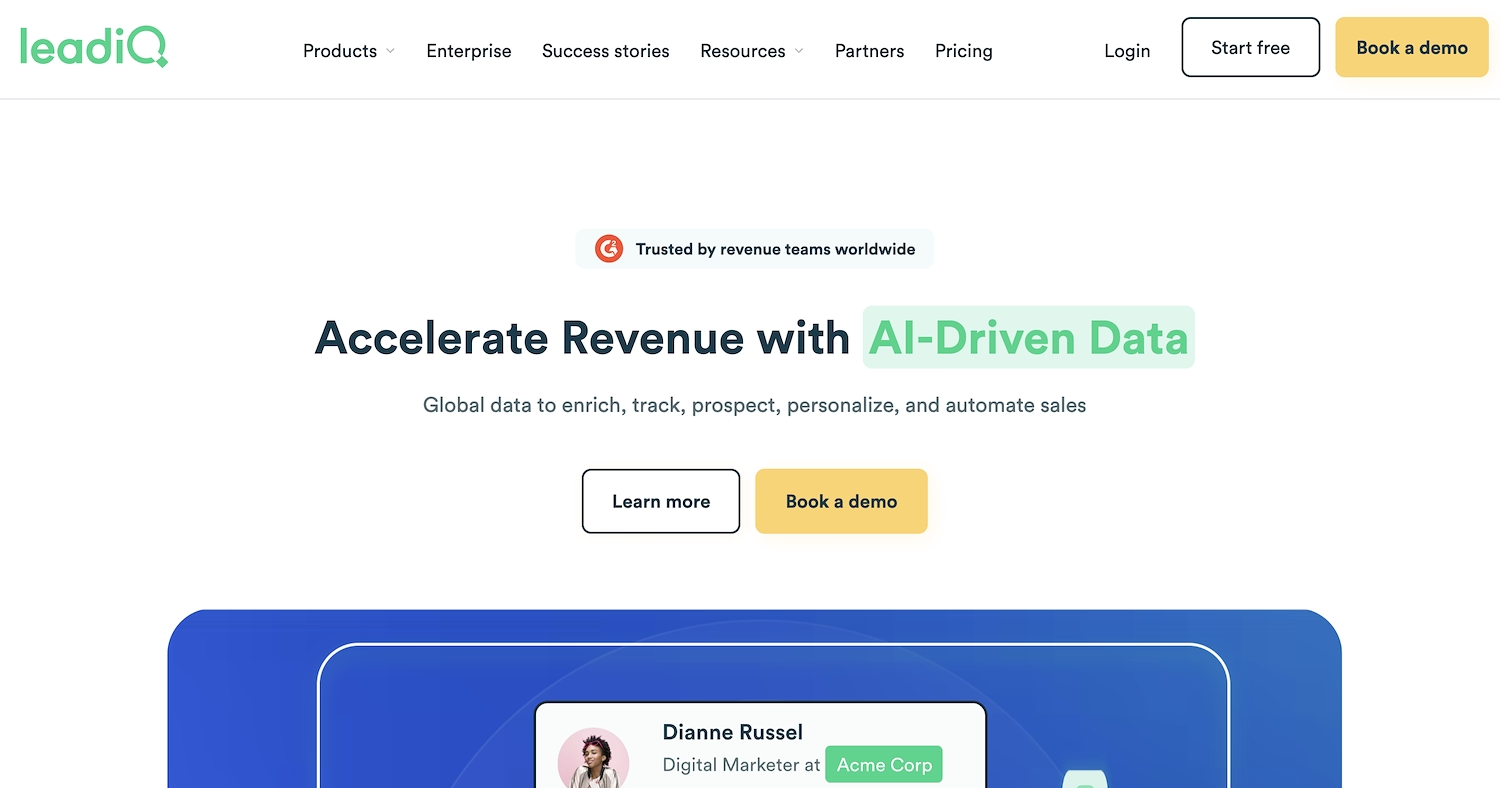
LeadIQ is a sales intelligence platform that provides a B2B database, technographics, and a phone number finder. Sales teams use the tool to create prospect lists and enrich contact records for outreach campaigns.
LeadIQ's Main Features
- Tracks sales triggers and monitors job changes to provide timely prospecting opportunities.
- Personalizes cold outreach messages at scale using its Scribe AI feature.
- Captures and enriches leads with contact information through a browser extension.
How LeadIQ Compares To UpLead
Average Review score: 4.2/5 stars based on 1,097 G2 reviews.
- LeadIQ tracks sales triggers like job changes to provide timely prospecting opportunities. This is different from UpLead, which focuses on building static contact lists.
- The platform includes an AI feature, Scribe, to help personalize cold outreach messages. In comparison, UpLead requires users to export data to a separate tool to create and send campaigns.
- It offers a browser extension to capture and enrich leads directly from websites. This workflow differs from UpLead's method of building lists from its internal database.
- A free plan is available, which allows users to test core features without a subscription. UpLead, on the other hand, operates on a paid-only model.
Potential Downsides Compared To UpLead
- Some users report that data from LeadIQ can be inaccurate. This is different from UpLead, which provides a 95% accuracy guarantee on its contact information.
- LeadIQ's database sometimes provides limited information for a contact. UpLead, in comparison, focuses on building more complete profiles with multiple verified data points.
- The platform is built for in-workflow prospecting. For teams that need to download large, verified lists for high-volume campaigns, UpLead's structure is often a more direct solution.
Pricing and Cost-Effectiveness
LeadIQ offers a free plan and paid tiers starting at $45 per month, while UpLead's paid plans begin at $99 per month. This makes LeadIQ a more budget-friendly option for teams needing in-workflow prospecting tools, whereas UpLead's pricing aligns with its focus on verified data quality.
Which One Should You Go With?
Choosing an UpLead alternative involves many factors, from budget to required features. This guide has detailed several options to help you find the right fit for your team's specific needs.
If your goal is to automate sales functions, consider 11x. Our platform uses AI agents to manage prospecting, outreach, and lead qualification, allowing your sales team to focus on closing deals instead of repetitive tasks.



